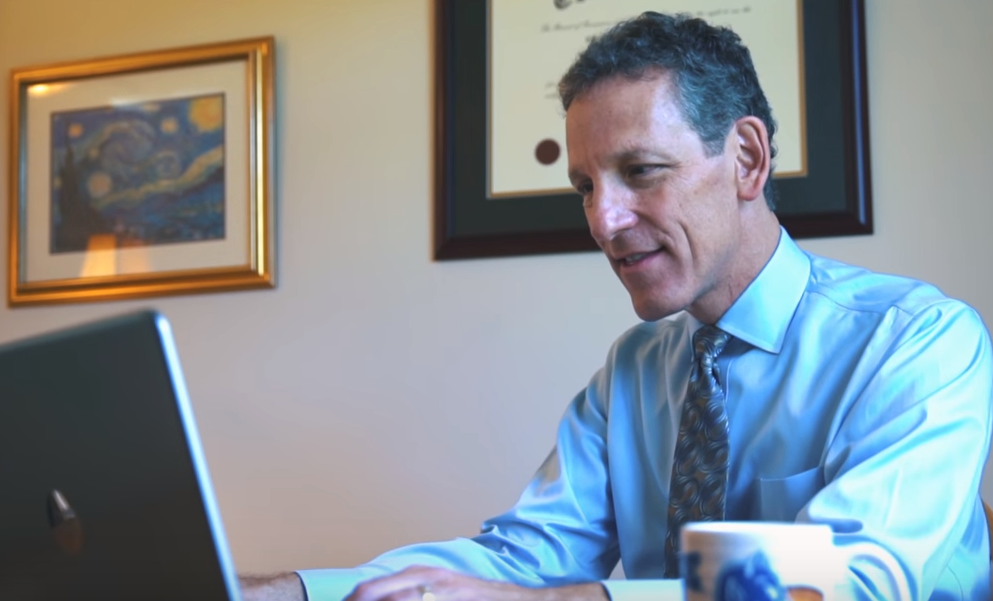Achieve More in Life and Feel Good About the Results
We often overestimate what we can accomplish in the short term and underestimate what we can achieve in the long term. The resulting frustration caused by these poor estimates often contributes significantly to our failure to sustain so many New Year’s resolutions.
But if you use these key strategies that are supported by deeply-held values – and science! – you’ll set better goals, achieve them, and feel better about yourself while doing so.
Know your values.
Knowing your values can provide real clarity on what you want to achieve in your life.
Ask yourself, what matters to you? What makes you excited to wake up in the morning? What are the passions and interests that fill your time when you’re not working? Who are the people you do those things with?
Another way to explore your values is by trying new things. For example, volunteering at your local religious or community center might reveal a passion for teaching or philanthropy that you never knew you had. These active experiments can become even more important as you age and start thinking about how you’ll stay happy and engaged in retirement.
Align your goals with your values.
Behavioral scientists have found that achieving goals is rarely a matter of ability or knowledge. For example, a person who wants to lose weight knows that eating ice cream five nights a week won’t help them meet their weight loss goals. Yet, the reason they keep downing that ice cream is often due to a lack of motivation. They might feel the immediate pleasure from the ice cream outweighs (no pun intended) the longer-term result of no weight loss, or worse, weight gain.
The more important you believe a goal is, the more motivated you are to achieve it. Asking “Why?” can help you align your goals with your values and increase that motivational component:
- Why should you stop eating ice cream five nights a week? Because you want to be healthier.
- Why do you want to be healthier? So that You can live a longer and more active life.
- Why do you want to live longer and be more active? So that you can do more things with your spouse, children, and grandchildren.
Now we’ve identified core values – health and family – that are tied to the goal. These values will make the goal more important, and more likely to be achieved.
Develop an action plan.
Asking “Why?” helps us move our goal setting to a higher, value-driven space.
Asking “How?” helps us drill down into specific actions we can take to achieve those goals.
“I want to lose weight” is the sort of goal many people set and then abandon. That’s because it’s too unspecific. You can’t just “lose weight” every day until you hit your desired number.
So, ask yourself, “How am I going to lose weight?” An answer like, “I’m going to exercise more” is closer, but still not actionable enough.
So how are you going to exercise more? Will you ride a bike through your neighborhood every morning, or jog for 30 minutes after work three days every week?
Those are small but solid steps that you can use to develop an action plan. You might even go a little further and join a gym, start a neighborhood walk group, or hire a coach to add an extra layer of accountability and keep you on track. And yes, cut out the ice cream and hot fudge!
Measuring is Motivating.
Whatever goal you set, try to keep score. It could be as simple as pulling out a piece of blank paper and putting a checkmark on it for each day you don’t eat ice cream. We find that the act of keeping score creates its own momentum and can be like a “pat on the back” for a job well done.
Be resilient.
Even a perfectly set, highly motivated goal will be challenging. One lazy Saturday you’ll oversleep and miss your workout. You’ll cheat on your diet. An unexpected home repair might throw off your budgeting goals for the month. But that’s ok! We’re all human. Roll with it that day but then get right back to your plan.
All goals and personal improvements require effort. The grit we need to get over those inevitable humps is an example of the kind of skill you can cultivate. Try to push yourself above and beyond your smaller targets. Welcome and accept feedback and criticism that can make you perform better. Prepare yourself to do better tomorrow when your alarm goes off. If you want to start your day by exercising, consider laying out your exercise clothes the night before. Before I started exercising regularly, I used this practice to help get my exercise program started. I still do it even though I now consider early morning exercise an essential part of my day.
And most importantly, stay positive. If your goals truly are aligned with your values, then working towards them shouldn’t feel like punishment. When you experience setbacks, try to embrace them as learning opportunities and adjust your action plan accordingly. And here’s an important piece of advice – when you hit small milestones on your way to big goals, treat yourself. We can all use a little positive reinforcement.
We’re here to help you.
What you aspire to achieve may require a financial commitment. Please contact us and we can discuss your situation and see how we can help you get on a faster path to achieving your life’s aspirations.
Sources
https://www.belayadvisor.com/behavior/
https://99u.adobe.com/articles/55219/true-grit-how-to-build-up-your-resilience
————————————————————————
I often highlight Health Savings Accounts (HSA) because many are unaware of the true value they provide. This week’s first article suggests that this trend may be changing. If you participate in a High Deductible Healthcare Plan, please consider taking full advantage of the benefits an HSA offers.
Here are the links to this week’s articles as well as a brief description of each:
1. More Investors Looking at HSAs as a Way to Save for Retirement.
I share articles on the benefits of Health Savings Accounts frequently. I also wrote a longer blog about the related benefits. HSAs represent an often misunderstood way to save for retirement. According to this article, an increasing number of employers and employees share this view. As discussed in the aforementioned blog, HSAs provide a triple tax benefit. The earlier you start using them the better. Over the Thanksgiving holiday, I discussed these benefits with two of my nieces who are just starting their careers. The ability to invest the funds in your HSA only increases its value. If you would like to discuss how to optimize the potential value of your HSA, please schedule a free call.
2. 6 Ways Kindness Is Good for You.
Helping others can benefit you as well as those you are helping. Activities such as volunteering, mentoring, or treating a friend to a cup of coffee can improve your physical or mental health. They can help combat feelings of isolation and make you feel more connected to others. In short, studies show these activities can lead to better health outcomes later in life. The following are among the benefits shared in the article:
- Lowers blood pressure
- Improves heart health
- Makes your brain bigger
Check the article for the other ways kindness can help you and an explanation of the potential benefits.
3. 4 ways to tell your kids the truth about your retirement savings.
Many people have a hard time talking about money, especially with their kids. While having the conversation may be hard, in the end, not having it can be even harder. We often think it’s not our kids’ business. But it may be more their business than ours. As with most aspects of personal finance, transparency matters. Families should communicate about finances early and often. It might be awkward at first. The article shares some suggestions that can make the conversation less uncomfortable:
- Start early
- Write a letter
- Have a meeting
- Break the stigma
Making these conversations part of your normal dialogue can make things easier as both you and your kids get older.
4. My mom has 7 rules to be happy and successful as you age: No. 1 is, ‘Your 20s are mostly practice’.
Many of us get upset at the prospect of getting older. These feelings can increase as we approach a new, round number. I always keep in mind two things my father-in-law would say, “It beats the alternative” and “It’s lucky to grow old.” This blog’s author shares his mother’s helpful approach – “her rules of aging.” These guidelines can make you feel a lot better about getting older. The outcome can be a more highly successful life. Using these guidelines can also make it hard to feel old until you’re well into your 80s. They can make you feel better about aging. And our perceptions about aging can improve our physical and psychological health. They can benefit our longevity as well. While I hadn’t read these rules before, as I went through them, I thought they did a great job of describing the progression of my life as well.
5. The Discount Data That Some Colleges Won’t Publish.
At many colleges, you often pay less than the “published” price as you receive a discount off the “sticker” price. Unfortunately, you often don’t know what you will pay until the school admits you. The Common Data Set (CDS) represents a collection of information about admissions, demographics, financial aid, academics, and campus life. It can also help you estimate your chances of receiving merit aid. But some schools don’t post this information. This happens even though they share it with U.S. News & World Report and other college-ranking services. When it comes to need-based financial aid, not all families qualify. CDS tells you, on average, how much of your financial need a school can meet. If you find a school that doesn’t post the information online, you can ask them to share the most recent version. You can also check this blog for some tips on completing the Free Application for Federal Student Aid.
Our practice continues to benefit from referrals from our clients and friends. Thank you for your trust and confidence.
We hope you find the above articles valuable. We would be happy to address any follow-up questions you have. You can complete our contact form if you would like to talk to us about financial topics, including your investments, creating a financial plan, saving for college, or saving for retirement. Once you do that, we will be in touch. You can also schedule a call or a virtual meeting via Zoom.
Follow us:
Please note. We post information about articles we think can help you make better money-related decisions on LinkedIn, Facebook, and Twitter.
Phil Weiss founded Apprise Wealth Management. He started his financial services career in 1987 working as a tax professional for Deloitte & Touche. For the past 25+ years, he has worked extensively in the areas of financial planning and investment management. Phil is both a CFA charterholder and a CPA.
Located just north of Baltimore, Apprise works with clients face-to-face locally and can also work virtually regardless of location.





